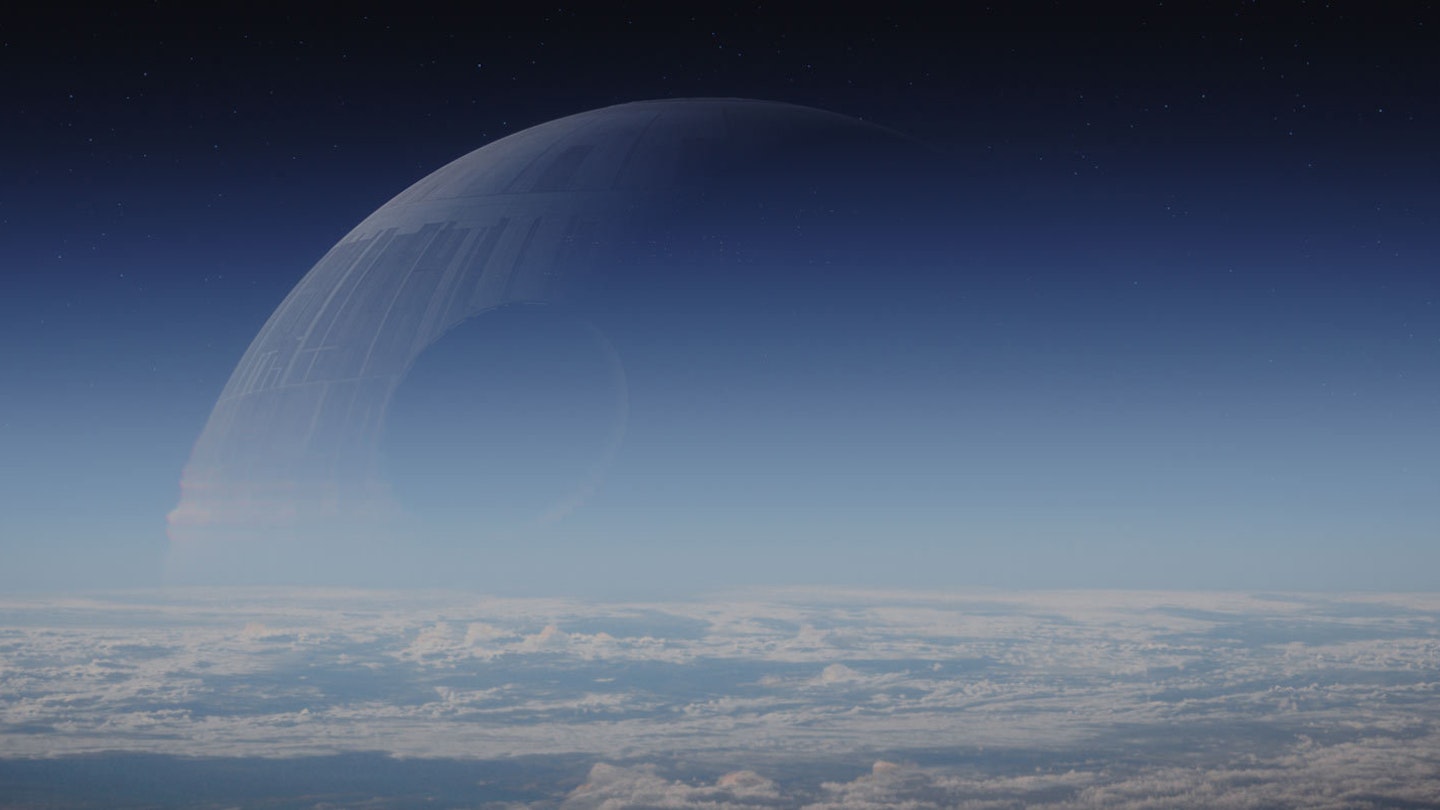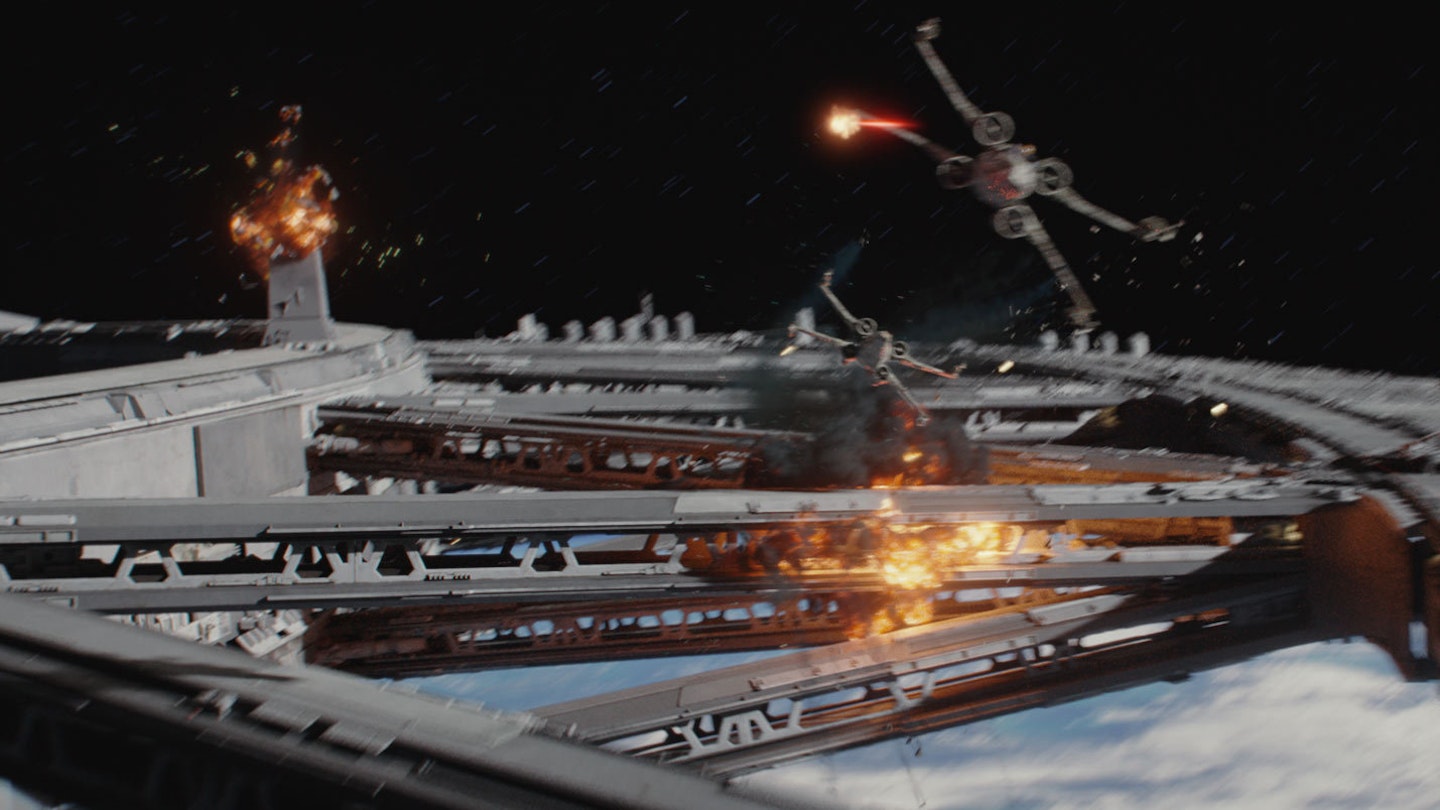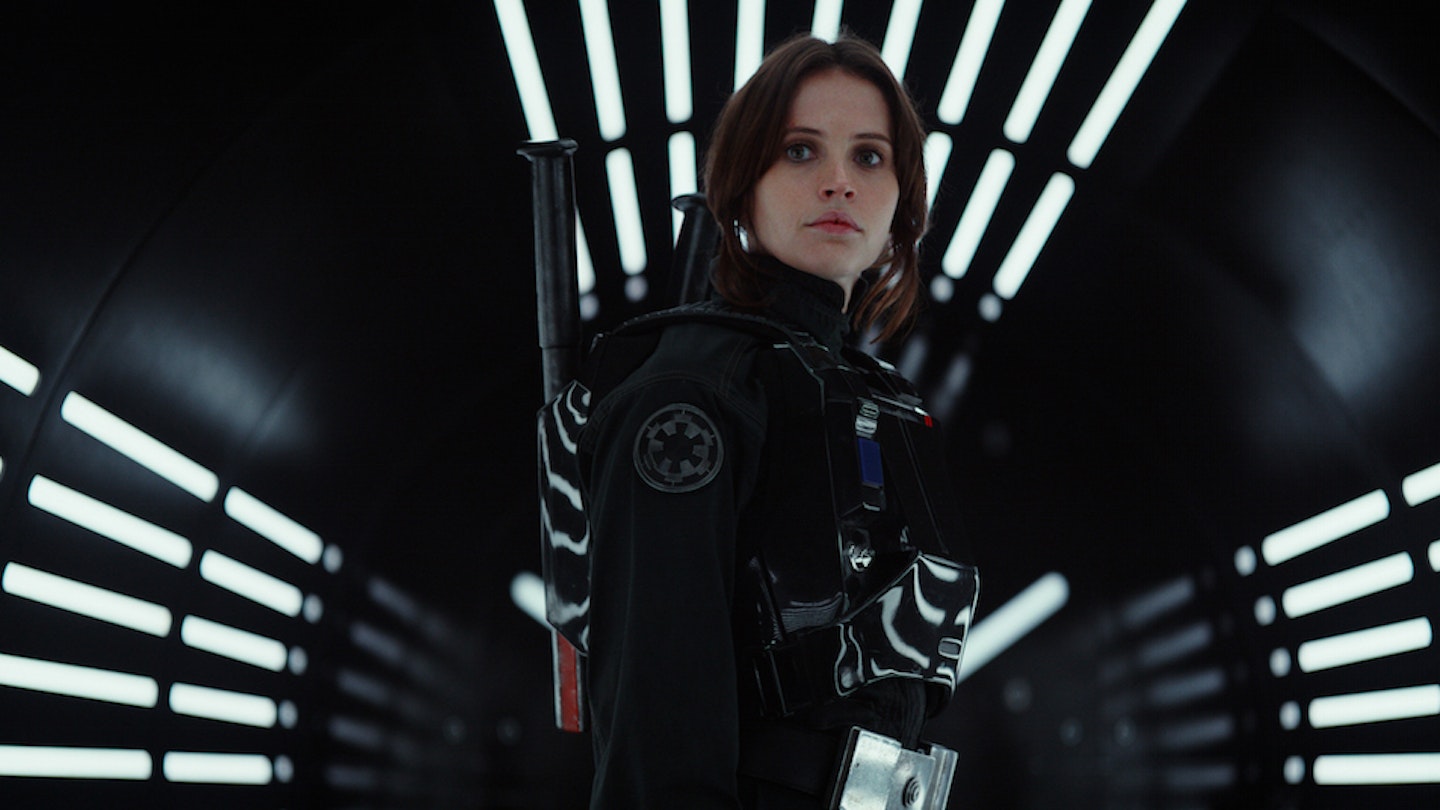In 2012, when Disney purchased Lucasfilm for a cool $4 billion, the Star Wars universe suddenly swelled with possibility. Disney's intention to release a new Star Wars film every year lead to the concept of Star Wars Anthology movies – and Rogue One: A Star Wars Story is the first in a hugely anticipated series of standalone movies set within the galaxy far, far away. Here is the story of how Rogue One came to be, from the producers, directors, actors and behind-the-scenes artists responsible for it.
Secret Plans

John Knoll (VFX Supervisor/Story): It started way, way back... It was summer, 2003, when we were shooting Episode III in Sydney and I'd heard George [Lucas] and Rick [McCallum] were developing a live-action Star Wars TV show. I started thinking, "what kind of fun stories could you tell in a live-action TV show?" and one of the thoughts I had was doing a sort of a Mission: Impossible-style break-in to the most secure facility of the Empire, to steal the Death Star plans. A day or two later I was chatting with Rick and I asked him about this live-action show and he told me about the era that it took place, and what the themes were and I realised that my idea had no place in his show, so I just dropped it entirely. I didn't really return to it until after Kathy [Kennedy] came on board [as President of Lucasfilm] and there was the announcement of the new slate of films, including these stand-alone stories.
Kathleen Kennedy (Producer): This all came from George. When he and I first sat down to start talking about the fact he was ready to start making Star Wars movies again, one of the things he brought up right away was how he had been thinking about the possibility that there were so many stories that exist outside the Skywalker saga. We started to have conversations about what some of those might be. Some of them had always been in his head and were quite developed storylines. And then we sat down and started writing some of them down.
Knoll: Star Wars is such a rich and complex universe, there's so many planets, characters, races and long a time span that you can tell these stories in, it's a wonderful playground that you can tell interesting stories in almost infinitely.
Kennedy: As I came into the company, John Knoll came into my office and said, "Can I talk to you a little bit about the idea that we might be doing other Star Wars movies, because there is something I've been thinking about for quite a while?" And it emanated from the opening crawl of A New Hope. And he started to describe to me what was frankly a fairly simple idea, which was this notion that rebel spies were going to go in and try to steal the plans of the Death Star. The minute he said it, I said, "You know what, that is a really fantastic basic premise. It could be a perfect standalone movie."
As the story developed, it got more and more epic.
Knoll: I had written up a six- or seven-page treatment and I pitched it to Kathy and Kiri Hart, who is the head of Lucasfilm story. It was probably a 45-minute meeting where I went through the story in detail, who the characters were, what themes we were trying to tackle with the film, and at the end of it I got a very polite, "Well I'm impressed, that's very good. Thanks." And so I left and I didn't hear anything for a week or so and I thought, "All right, well at least I did the pitch, so I won't ever wonder now what would have happened if I hadn't..." But about a week later I got a mail from Kiri that said, "You know, we think we may wanna proceed with this." And then it gradually snowballed into what we have today.
Kennedy: We didn't know at the time that it would end up being the first Star Wars Story but it was the most concrete, solid idea and so it was one of the first ones we started to work on.
Knoll: The broad strokes have all been as I originally pitched, but many of the details have changed. Some characters have gone, new ones have been added, and some of the mechanics of how the plot unfolds are now different. Mostly in the interest of making it bigger and more epic. Because when we'd originally talked about the stand-alone movies versus the numbered episodes, the numbered episodes were the big-budget things and the Star Wars Stories were supposed to be the smaller, scrappier lower-budget kinds of things. So bearing that in mind, in the pitch I had gone for something that could be made on a lower budget. As the story developed it got more and more epic, and I like to think that we have every bit as much production value as you'll see in the numbered movies. This won't feel like it's a lower budget smaller thing. It's a big tent-pole.
First Victory

Kennedy: I had seen what Gareth Edwards had done with Godzilla and Monsters, and I thought his style of film-making was really interesting and something that could give Star Wars a unique look.
Gareth Edwards (director): I was in the middle of doing post on Godzilla when I got an email request: "Could you come and meet Kiri, just for a chat?" And I thought, "This might be about Star Wars so I guess I should". I was exhausted from finishing Godzilla, so I wasn't going in like, "Oh please, please hire me!" I just wanted a break, so it was probably the perfect conditions to meet people, 'cos it was just a chat. I was thinking, "Oh they're meeting 10,000 people, I'm number 9,998". So we chatted and it went really well and that was that.
I thought, "Hang on, whoah, is this sacrilegious? Is this hallowed turf?"
And she sent me an email with two ideas attached to it. One of them was really cool, but it wasn't for me. Maybe that'll pop up at some point. But the other idea was what John Knoll had written, and I thought, "Hang on, whoah, is this sacrilegious? Is this hallowed turf? Is this an accident? Did they send me the wrong document?" And then I said I'd love to be involved.
This had happened just before Christmas, and I wasn't allowed to tell anyone. My parents got me all these Star Wars presents as silly jokes and I couldn't tell 'em, like, "I might be directing one". I had to keep it quiet for six months, and then suddenly Godzilla came out and I got a phone call saying, "Okay, you're doing Star Wars. The Variety story is gonna come online in about 10 minutes. If you wanna tell anyone, tell 'em now.” So I quickly called my mum and my dad and my sister, though I still felt like the whole time, “this ain't gonna happen. Something's gonna go wrong and I'm not gonna get to do it. It seems too good to be true.”
